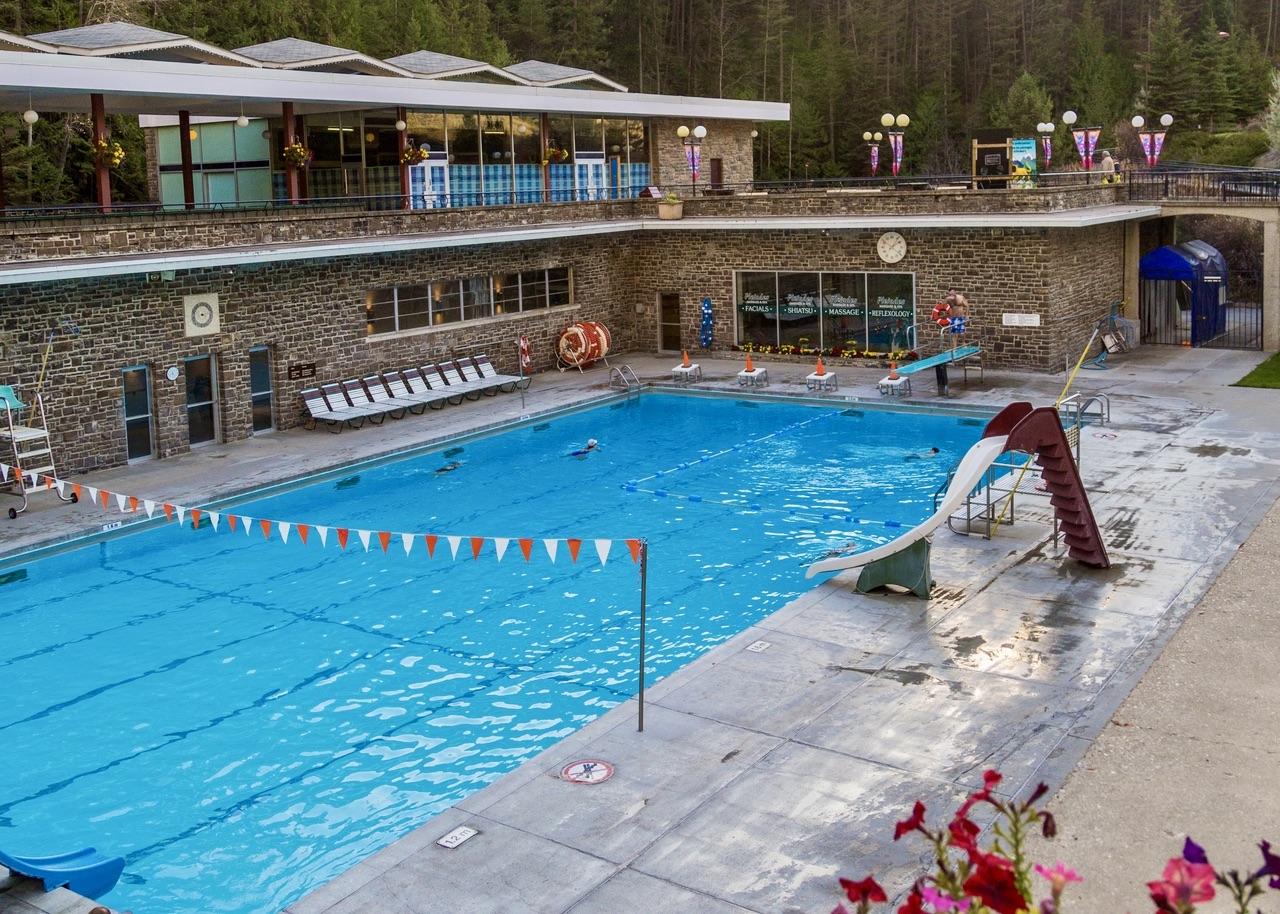
The Radium cool pool facility at Kootenay National Park in British Columbia/Parks Canada
Kootenay National Park in British Columbia is getting $13 million ($9.6 million USD) to restore the Radium Hot Springs Aquacourt
The Aquacourt is a Classified Federal Heritage Building because of its historical associations and architectural and environmental values. Opened to the public in 1951, it was one of the first major post-war building projects in the western national parks.
The cool pool and foundations of the building at the Aquacourt will be repaired to improve visitor experience and increase the site’s resiliency to flooding. New culverts under the building will be installed to direct water flow and protect the foundation, and there will be other upgrades.
This project will help Parks Canada’s conservation efforts by adding erosion protection to safeguard nearby fish habitats. The cool pool will be improved for visitor and staff safety and accessibility. A surface level gutter system will allow visitors to easily enter and exit the pool, let lifeguards safely execute rescues, and provide a smoother, faster swim experience for users. Renovation of hand rails will be provide improved stability when entering and exiting the pool. A new lift will improve accessibility.
This project is part of the federal government’s recently announced funding of $557 million ($412 million USD) over three years to ensure the continuation of infrastructure projects and maintenance work for Parks Canada’s wide-ranging infrastructure portfolio of more than 18,500 built assets.
Kootenay was established with the Apr. 21, 1920 signing of an agreement to build the Banff-Windermere Highway (Hwy. 93 South) connecting British Columbia and Alberta. When the road opened in 1923, more than 4,500 vehicles traveled the highway that year. Today, more than 500,000 people visit Kootenay every year. Hwy. 93 South has wildlife mitigations including 15 kilometres (9.3 miles) of wildlife exclusion fencing and nine underpasses.


